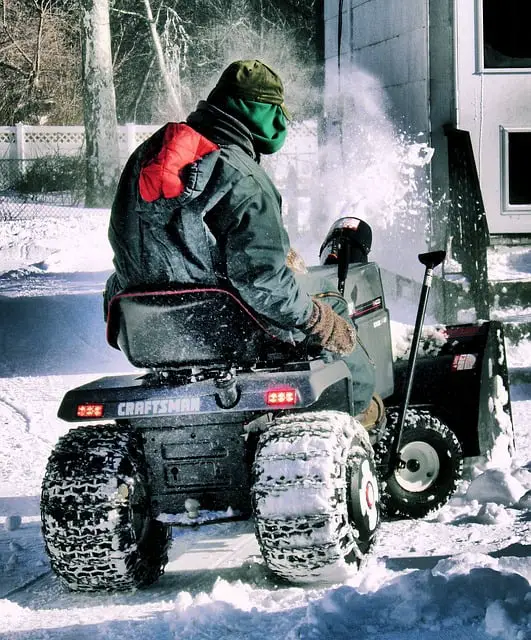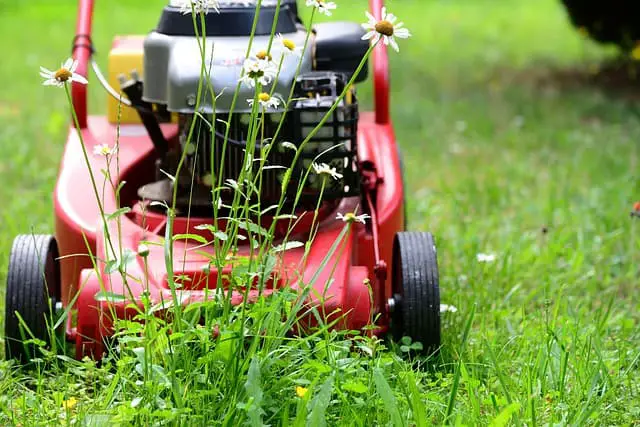Kubota tractors are designed to last for 4,500 to 5,500 hours of use. If you have a Kubota tractor and tend to the maintenance as needed, you could extend its hours of use to 10,000. This is why it’s crucial to stay on top of your equipment’s maintenance.
Are you curious to learn more about how long a Kubota tractor will last? You’ve come to the right page. Today, we’re going to discuss everything you need to know about making a Kubota tractor last. Keep reading to have all of your questions answered and find out if Kubota outlasts the competition.
How many years will a Kubota tractor last?
Kubota tractors are designed to last for 4,500 to 5,500 hours of use and most people will use their tractor for an average of 100 to 200 hours each year. Depending on how often you use your tractor each year, it could last for an estimate of anywhere 22 to 55 years.
Of course, how you tend to the machine will play a big role in how long it really lasts you. If you are good to the Kubota tractor, you could extend its life by many years or even decades
What can I do to make a Kubota tractor last longer?
How you care for your Kubota tractor will be the ultimate factor in how long it really lasts. Every year, the Kubota tractor will need maintenance, such as oil changes and filter changes.
The way you operate the tractor is important as well because if you drive it too hard, it will wear out sooner. Another thing you need to consider is keeping it clean after using it and storing it properly so it doesn’t get wet.
How long do Kubota engines last?
According to Eagle Pitt, if you keep up with annual maintenance, a Kubota diesel engine should last for 10,000 hours of use. That is quite impressive because most tractor engines are designed to last for 6,000 to 8,000 hours.
Kubota tractors are known for lasting longer than other brands on the market. Learning how to tend to a Kubota tractor properly could help you extend how long the engine lasts.
What should you do before operating a Kubota tractor for the season so it lasts longer?
Before you operate your Kubota tractor at the beginning of the season, it’s important that you drain out any fuel from last season and fill it up with fresh fuel. This is because old fuel begins to get thick and gunky, which can clog the tractor’s filters and engine.
If you operate the tractor with old fuel, it could lead to damage to some of the internal parts of the machine. This could lead to an expensive repair or an early breakdown for your Kubota tractor.
What should you examine before operating a Kubota tractor at the beginning of the season?
An area that you should check for at the beginning of the season to ensure longevity for your Kubota tractor is its belts. It’s important to make sure there aren’t any cracks or dents in the belt before using the machine.
If there are any signs of wear and tear or damage to the tractor belt, it could put other parts of your machine at risk. When the belts aren’t maintained, the blades, alternator, hydraulic pump, and how the battery charges are all affected by it.
How can you prevent the early failure of a Kubota tractor?
One easy way to keep your Kubota tractor in good working order is to inspect and clean the battery. If the battery has been sitting idle over the winter season, it is very likely to discharge.
When a tractor battery discharges, it can cause all sorts of problems to the internal parts, including engine failure. Using a battery that is functioning at the right level and has been charged can take a lot of stress off of key parts to the tractor.
Will I need to replace parts of the Kubota tractor?
If you keep up with your Kubota tractor’s maintenance, it could last a lifetime. However, there will be some parts that you will need to replace over the years to ensure the tractor is performing at its best.
It is very likely that you will need to replace the cutting blades every few years because they will become dull and rusty. At some point, you may also have to replace the tires to continue driving at a consistent level.
Do Kubota tractors hold their value?
A well-maintained Kubota tractor can hold its value over the years. According to Humphreys Outdoor Power, Kubotas are among some of the best tractors to buy used.
While Kubota is a trusted name in the tractor industry, who you buy the Kubota tractor will play a part in how valuable it is. If the previous owner took good care of the machine, then it should still hold its value.
Why should you choose a Kubota tractor instead of John Deere?
John Deere is the best-selling tractor brand in the US, but many farmers have admitted that they prefer Kubota tractors. Both brands deliver optimal performance, but Kubota has better maneuverability with the attachments than John Deere.
Another reason why people prefer working with a Kubota tractor is that the machine is designed to be comfortable. Many Kubota cabs feature cushioned seats with backrests and armrests, as well as drink holders. Some Kubota tractors even come with heated cabs.
Where are Kubota tractors made?
There are Kubota manufacturing facilities worldwide, as it was originally a Japanese brand that made a huge impact in North America. Now, there are many Kubota manufacturing facilities across the US.
The two main Kubota manufacturing facilities are both located in the state of Georgia. If you purchase a Kubota tractor in North America, there is a good chance that it came from one of the facilities in Georgia, which employ over 1,200 US workers.
Hi, I’m John Stephens, chief editor and writer for Totalgardener.com. I’ve been gardening and raising animals for over 15 years starting with a small backyard plot in Northern Virginia where I grew corn, potatoes, squash, and using a high mulch technique called the Ruth Stout Method. I also raised ducks and small mammals for meat and eggs in a movable pen similar to the ones used by Joel Salatin. I later moved to Colorado where I experimented with growing greens using aquaponics inside. I eventually added a microgreens setup and home sprouting operation. I’m excited to share everything I’ve learned plus more from the other local gardening and animal raising experts I know.



